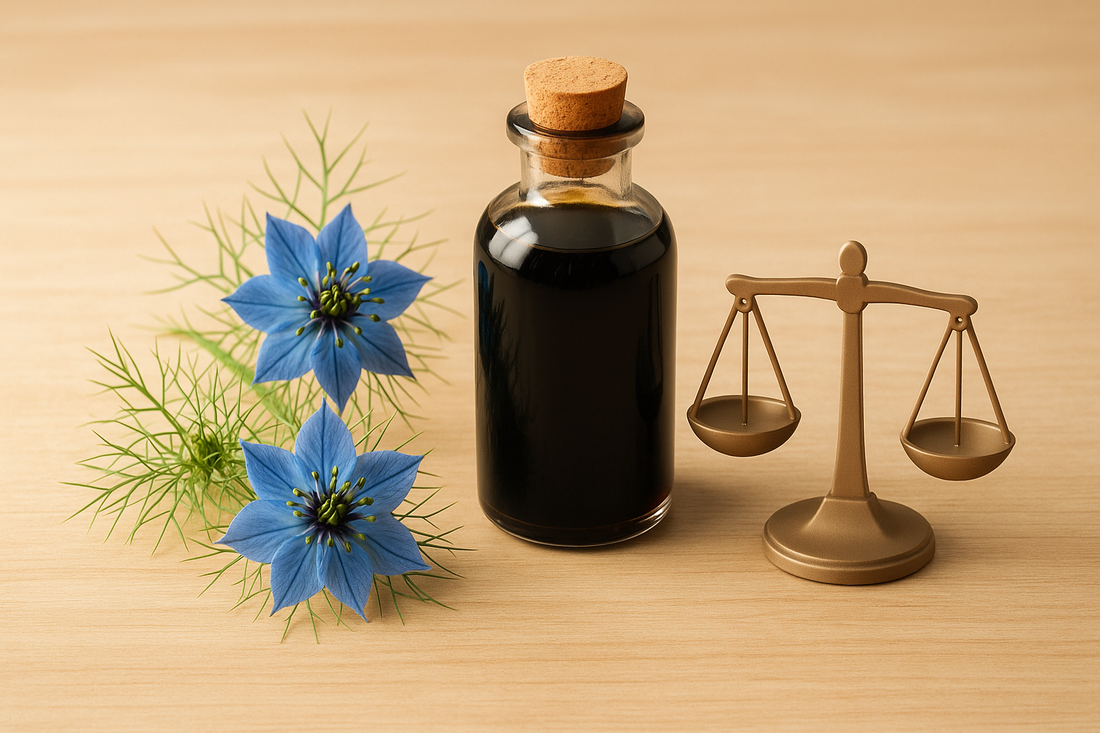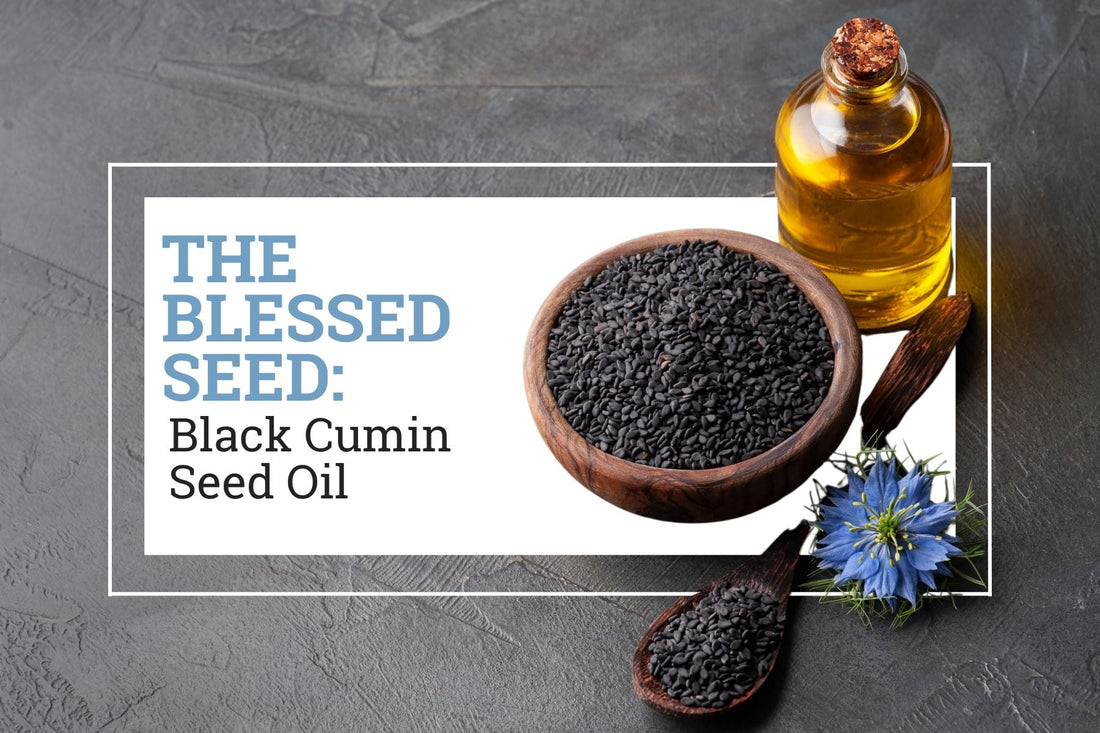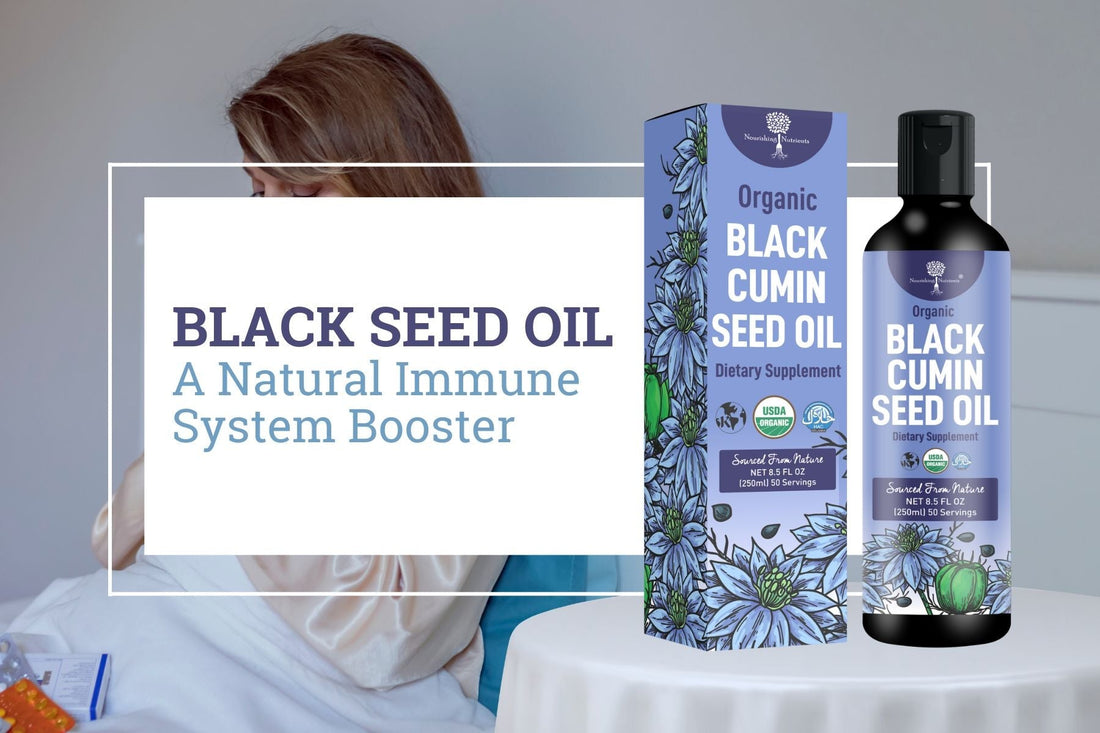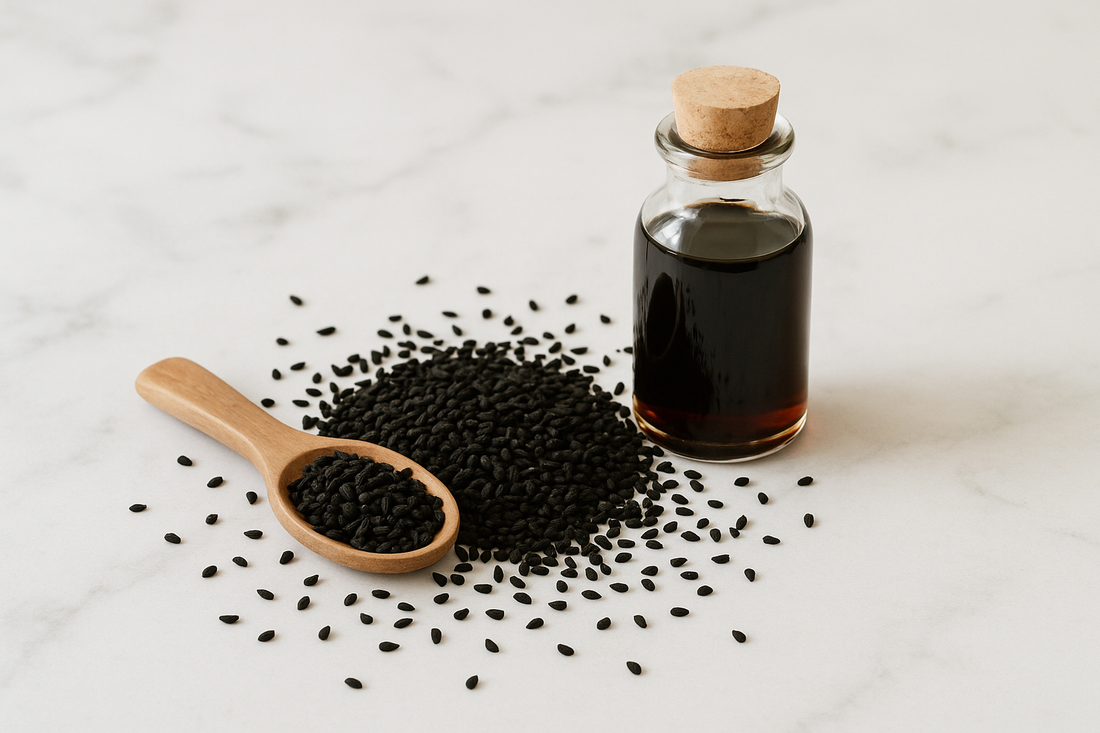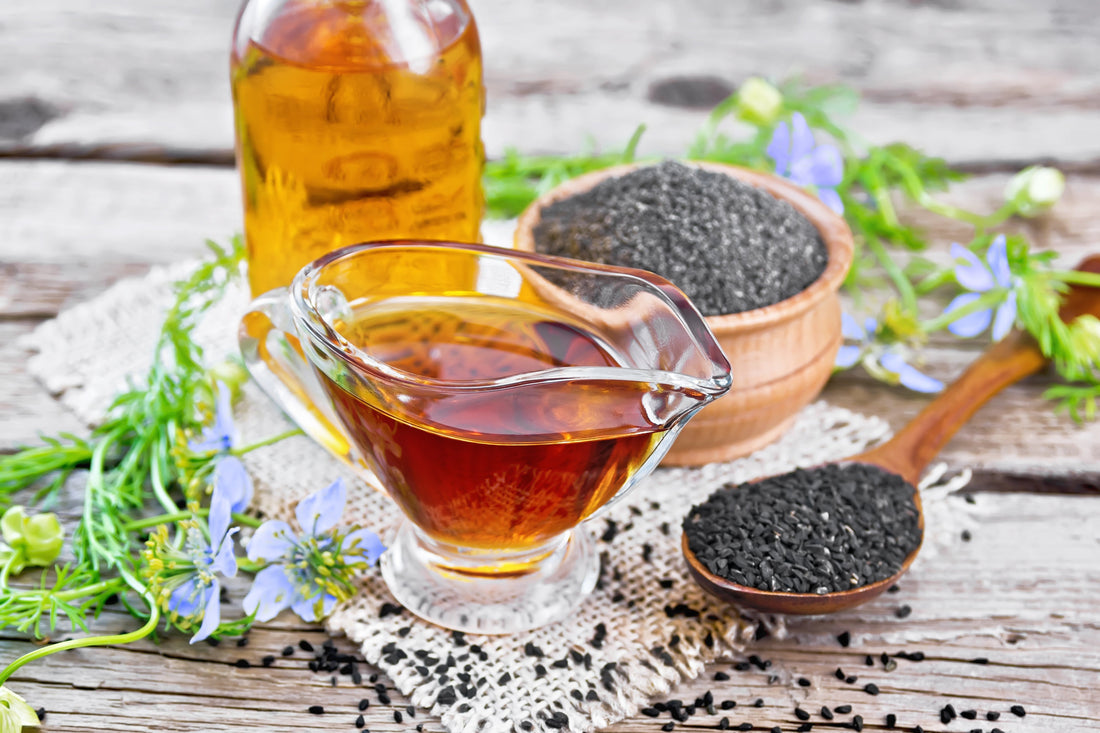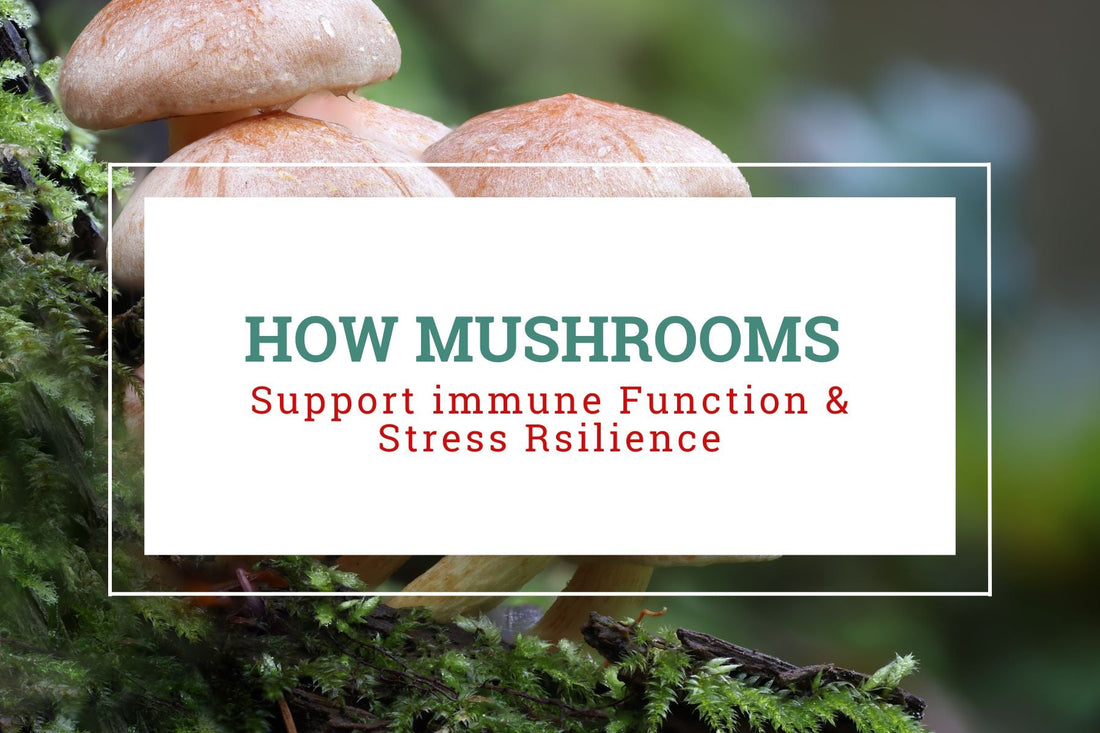Health
Black Seed Oil (Nigella Sativa) for Metabolic Balance and Energy
Learn how black seed oil (Nigella sativa) may support normal blood sugar, appetite, and energy levels, helping with weight management.
Learn moreBlack Seed Oil (Nigella Sativa): History, Benefits, Nutrition, and Uses
Discover the history, nutritional profile, and research on black seed oil (Nigella sativa). Learn how black cumin seeds, kalonji, and black seed oil supplements may support skin, immunity, digestion, and energy.
Learn moreCitrus Bergamot's Secret Weapon: Polyphenols for Heart, Immune System, and Gut Health
Curious about polyphenols and why everyone's talking about them? In this science-backed article, we break down how Citrus Bergamot, a polyphenol-rich superfruit from Italy, supports inflammation, heart health, and gut balance—especially when paired with fiber. Learn why this potent antioxidant source may be the best-kept secret in natural cholesterol support and weight management.
Learn moreBlack Seed Oil: A Natural Immune System Booster
Black seed oil, pressed from the seeds of Nigella sativa, is valued for its higher thymoquinone content. Research suggests it may support the body’s natural defenses through antioxidant and immune-modulating activity. This article explores its history, active compounds, and how people commonly use it today.
Learn more9 Black Seed Oil Benefits that Could Boost Your Health
Explore the scientific research behind black seed oil (Nigella sativa) and its traditional uses. Learn about the studies on thymoquinone, antimicrobial properties, and 9 key research areas including diabetes, skin health, and cardiovascular support.
Learn moreHow Black Seed Oil May Support Immune System Health Naturally
Discover how black seed oil enhances immune system health, reduces inflammation, and supports overall wellness naturally. Learn the science behind this powerful supplement.
Learn moreBlack Seed Oil and Your Lungs
For centuries, black seed oil has been called the “magic seed of Egypt.” Found in ancient tombs and praised in Middle Eastern texts, this dark, peppery oil has long been used to ease coughs, chest tightness, and breathing troubles. Now, science is catching up—showing how this traditional remedy might support your lungs, reduce inflammation, and help you breathe easier every day.
Learn moreThe Surprising Benefits of Using Pearl Powder: 7 Science-Backed Reasons It Must Be Added to Your Health and Beauty Routine
Discover why pearl powder is more than just a timeless beauty secret. Backed by modern science and centuries of traditional use, this natural supplement supports glowing skin, stronger bones, sharper brain function, and antioxidant protection—from the inside out. In this article, you’ll learn 7 powerful, research-backed reasons to add freshwater pearl powder to your health and beauty routine today.
Learn moreHow Mushrooms Support Immune Function & Stress Resilience
From ancient Chinese medicine to modern wellness trends, there’s a reason mushrooms have earned a reputation as powerful allies in promoting resilience and vitality. But in recent years, their popularity has surged exponentially thanks to modern science finally discovering their real health benefits. These fungi are packed with bioactive compounds that support the immune system and help the body combat stress. Here's all the reasons you shouldn’t be missing out on the benefits of these natural adaptogens, and how you can make sure to harness the best of them in your every-day life. The Science Behind Mushrooms It’s no secret that mushrooms are rich in essential nutrients like vitamin B, vitamin D, selenium, and potent antioxidants like ergothioneine. But what most people may not know is that they are also classified as adaptogens, as they help the body regulate stress and restore balance. They do this mainly by modulating the hypothalamic-pituitary-adrenal (HPA) axis (the system responsible for managing stress and immune function). These compounds also contribute heavily towards cellular health, energy production, and overall immune resilience. How Mushrooms Support Immune Function Beta-Glucans And Anti-Oxidants: The Immune System’s Best Friend Beta-glucans, found in Mushrooms, act as immunity modulators and naturally stimulate immune cells such as macrophages and white blood cells, which enhances the body’s ability to fight infections and other diseases that target your immune system. Mushrooms also contain powerful antioxidants like ergothioneine and selenium, which help to combat oxidative stress (a condition where the body struggles to detoxify the effects of free radicals), which happens to be one of the largest factors behind a deteriorating immune system. These compounds from the mushrooms work towards repairing cell damage, reducing inflammation in your body and enhancing immune resilience. Immune-Boosting Mushrooms Reishi: Known as the "mushroom of immortality," Reishi supports immune balance and contains anti-cancer properties, as studies have shown that it inhabits the growth of cancer cells. Shiitake: Rich in beta-glucans, Shiitake mushrooms enhance immune response and promote cardiovascular health. They are also a good source of vitamins, as they contain B vitamins (B2, B3, B5, B6), vitamin D, and even minerals such as copper, selenium, and zinc. Maitake: These mushrooms are celebrated for their ability to stimulate white blood cell activity and fortifying the body's defence mechanisms. How Mushrooms Enhance Stress Resilience Most adaptogens help the body maintain homeostasis during stressful situations. For example, chronic stress can lead to excess cortisol production, which can weaken the immune system and cause fatigue. Adaptogens help reduce cortisol in your body, which allows the body to recover more effectively from stress with no side effects. Lion’s Mane Mushrooms, Cordyceps and Chaga are all potent antioxidants that help reduce the side-effects of stress in your body and reduce overall fatigue levels too. Nourishing Nutrients Organic Mushroom Powder As amazing as mushrooms are, it’s not feasible to incorporate them in your diet. Some mushrooms are only available seasonally, and species like Shiitake and Maitake are hard to find outside speciality stores, which aren’t easy to come by. And even if you manage to source them, mushrooms take a lot of cleaning and preparation time. However, organic mushroom supplements are a good option for those who are interested in taking full advantage of the benefits of mushrooms, without any of the hassle. Nourishing Nutrients’ Organic Mushroom Powder offers a potent blend of Reishi, Shiitake, Lion’s Mane, Cordyceps, Chaga, and Wood Ear mushrooms with maximized benefits to suit your needs. High Potency: Contains over 30% Beta-D Glucans, making it significantly more effective than standard mushroom powders. Pure & Organic: Sourced from wild mountain regions and select farms, free from fillers, chemicals, and GMOs. Superior Extraction: The 14:1 extract ratio ensures maximum bioavailability, utilizing only the fruiting body of the mushrooms. 3rd Party Tested: Verified for purity and potency, ensuring a safe and effective product.
Learn more